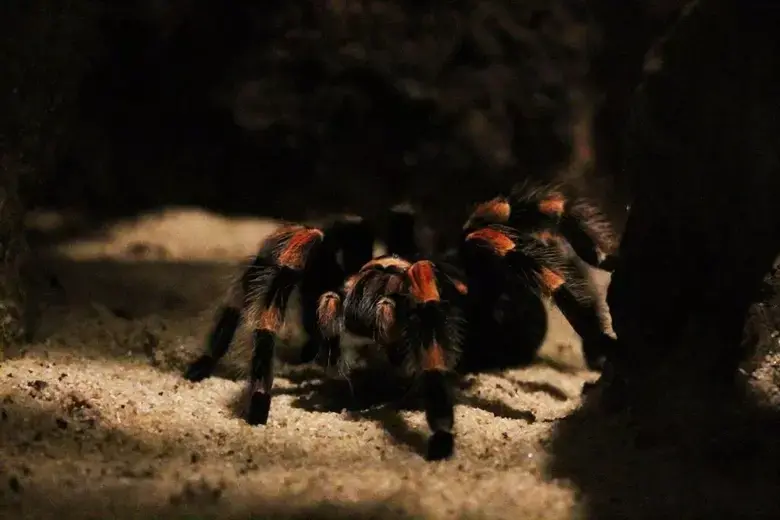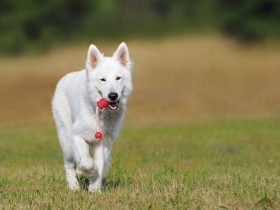
Exotic pets are animals not commonly kept as pets, usually due to their unique characteristics, behavior, and/or habitat requirements. These animals may include reptiles, birds, mammals, and even insects, and are often imported from different parts of the world to be sold in the pet trade.
Exotic pets are becoming increasingly popular among animal lovers. These unique creatures can make for fascinating companions. Still, it is important to carefully research each animal’s needs and requirements before bringing one into your home. Here are a few of the most popular exotic pets for someone planning to get an exotic pet:
Table of Contents
Bearded Dragon
Bearded dragons are a popular choice for reptile enthusiasts. These lizards are friendly, easy to handle, and relatively low maintenance. However, they require a large enclosure with proper lighting and heating and a varied diet that includes live insects and vegetables. Here are some care tips for bearded dragons:
Habitat: you need to provide a large and spacious habitat that includes a heat lamp, UVB light, and a basking spot for a bearded dragon. The enclosure should also be lined with a substrate that allows for easy cleaning and is not harmful if ingested.
Temperature: Bearded dragons need a basking temperature of around 95°F to 110°F and a cooler area of around 75°F to 85°F. It is important to monitor and adjust the temperature accordingly to prevent overheating or underheating.
Lighting: Bearded dragons need ample UVB lighting to aid digestion and calcium absorption. The UVB light should be replaced every 6 to 12 months as the effectiveness of the light decreases over time.
Diet: Bearded dragons are omnivores, so they require a balanced diet of insects and vegetables. Various insects such as crickets, mealworms, and super worms can be fed, along with vegetables such as collard greens, kale, and squash.
Hydration: Bearded dragons must always have access to fresh, clean water. A shallow water dish should be provided in the enclosure for the bearded dragon to drink from and soak in.
Handling: Bearded dragons are generally docile and enjoy being handled, but you must handle them properly to avoid injury. Always support their entire body and avoid squeezing or pulling on their limbs or tail.
Health: Regularly take your Bearded dragon to the veterinarian to ensure its health. Signs of illness may include lethargy, loss of appetite, and abnormal behavior.
Tarantula
Tarantulas are popular among arachnid enthusiasts due to their diverse range of species, unique behavior, and low maintenance requirements. However, they require a secure enclosure with proper substrate, hiding places, and a diet of live insects. Here are a few tips to care for your pet tarantula:
Housing: Provide a suitable enclosure for your tarantula with enough space to move around. The enclosure should be escape-proof and should have a secure lid. A good rule of thumb is to provide a terrarium that is at least three times the leg span of the tarantula.
Substrate: Use a suitable moisture-retaining substrate, such as coconut fiber or peat moss. Avoid using substrates that are too dry or too wet.
Temperature and Humidity: Tarantulas thrive in a temperature range between 75-85°F (24-29°C) and require a humidity level of around 60-70%. You can achieve this by misting the enclosure regularly or providing a water dish.
Feeding: Tarantulas are carnivorous and require live prey like crickets, mealworms, and roaches. Feed your tarantula once or twice weekly, depending on size and appetite. Look out for Dubia Roaches For Sale to get them the most nutritious diet within your budget.
Handling: Avoiding your tarantula as much as possible is best. They are delicate creatures, and mishandling can harm them or cause them to become stressed.
Health Check: You should regularly check your tarantula for any signs of illness, such as lethargy or loss of appetite. If you notice anything unusual, consult a vet specializing in exotic pets.
Ferret
Ferrets are playful and social animals that require a significant amount of attention and care. They require a large, multi-level enclosure with plenty of toys and hiding places, a specialized diet that includes high-quality ferret food and fresh meat, and regular veterinary check-ups. Here are some tips to help you care for your pet ferret:
Housing: Ferrets require a spacious enclosure with plenty of room for exercise and play. A multi-level cage with ramps and platforms is ideal, and the cage should be made of sturdy materials that can withstand the ferret’s chewing and digging habits.
Litter Box: You can train your ferret to be litter trained, so you will require a large litter box with a low entry point for easy access. Use high-quality, low-dust litter, such as paper pellets or recycled newspaper.
Diet: Ferrets are obligate carnivores and require a high-protein, low-carbohydrate diet. Feed your ferret a high-quality commercial ferret food that is specifically formulated for their nutritional needs, and avoid feeding them dog or cat food.
Exercise: Ferrets require daily exercise and playtime outside of their cage. Provide them with toys, tunnels, and climbing structures to keep them entertained and active.
Health Checkups: It is important to regularly take your ferret to a veterinarian who specializes in exotic pets for checkups and vaccinations. Ferrets are prone to certain health conditions, such as adrenal disease and insulinoma, and early detection is important for successful treatment.
Grooming: As Ferrets have a naturally oily coat, it requires occasional grooming, such as brushing or bathing. Use a ferret-specific shampoo and avoid over-bathing, as this can strip their coat of natural oils.
Socialization: Ferrets are social animals and require daily interaction with their owners or other ferrets. Give them plenty of attention and playtime, and consider adopting a second ferret to keep them company.
Parrot
Parrots are intelligent and social birds that require a significant amount of attention and interaction. Therefore, they need a large, sturdy cage with plenty of toys and perches, a specialized diet that includes fresh fruits, vegetables, and pellets, and regular interaction with their owners. Here are some tips for caring for your pet parrot that you might find useful:
Housing: you must provide a spacious and safe enclosure for your parrot that is large enough for them to move around and stretch their wings. The cage should be made of durable materials and should have plenty of toys, perches, and food and water dishes.
Diet: You should provide your pet with a balanced diet that includes fresh fruits, vegetables, nuts, and seeds. Feeding your parrot meals that are heavy in fat, salt, or sugar is not recommended. You should consult a veterinarian specializing in birds for guidance on your parrot’s specific nutritional needs.
Exercise: Parrots need regular exercise outside of their cage. You can provide them with plenty of toys and perches and allow them to fly around in a bird-proofed area under your supervision.
Socialization: Parrots are social animals and require daily interaction with their owners or other parrots. Spend time with your parrot daily, and consider adopting a second parrot to keep them company.
Grooming: You must regularly groom your parrot to keep its feathers and beak healthy. Provide them with a shallow water dish for bathing, and trim their nails and beak as needed. Consult with a veterinarian or a professional bird groomer for guidance on properly grooming your parrot.
Health Checkups: Take your parrot to a veterinarian specializing in birds for regular checkups and vaccinations. Parrots are prone to certain health conditions, such as respiratory infections and feather picking, and early detection is important for successful treatment.
Concluding Thoughts
It is important to note that owning an exotic pet requires a significant amount of time, effort, and resources. Each animal has unique needs and requirements, and it is important to thoroughly research the specific care requirements of any exotic pet before deciding to bring one into your home. Additionally, some exotic pets may be illegal to own in certain areas, so it is important to check local laws and regulations before deciding.











Leave a Reply